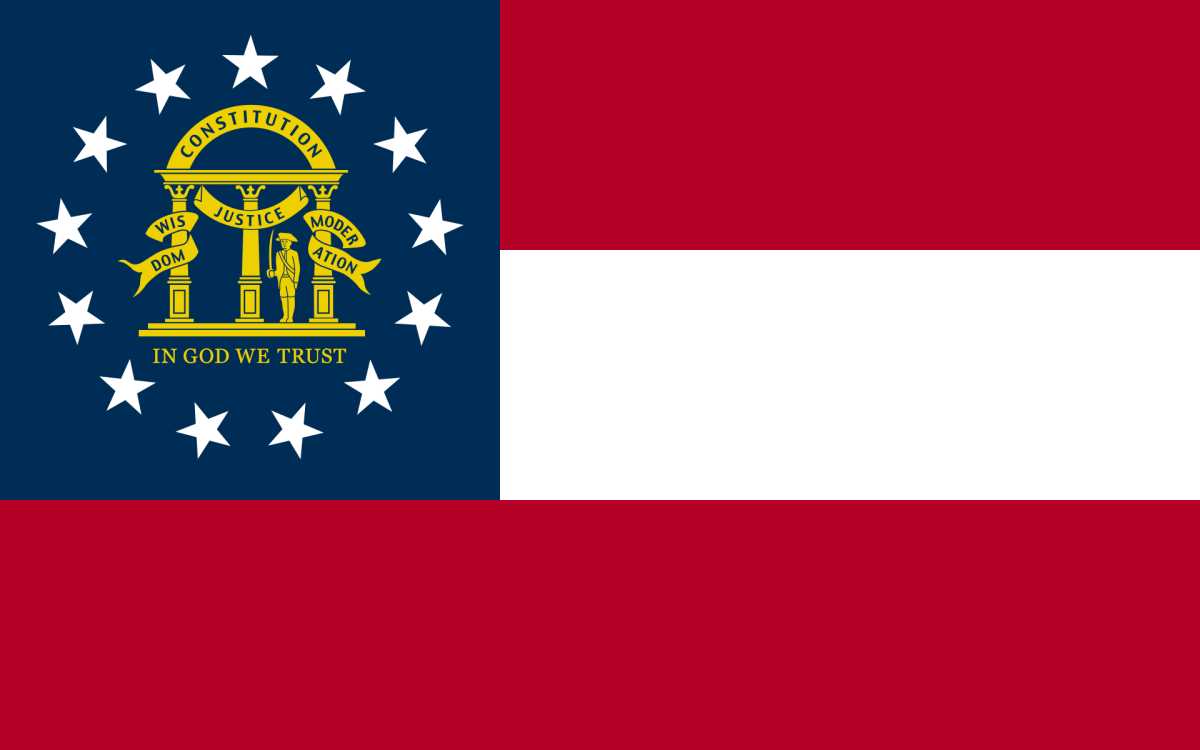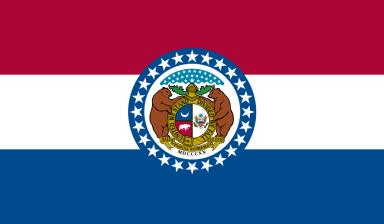Georgia Employment and Labor Laws

While Georgia saw fewer discrimination charges filed with the EEOC in 2022 than other states (3,729, representing 5.1% of the national total), high-profile cases highlight ongoing issues. In 2007, 27 Clayton County employees were controversially fired based on race, winning a $7 million settlement and reinstatement. This aligns with the EEOC report, where racial discrimination was the second most common charge (1,351 cases).
At present, Georgians may struggle to understand the distinction between employment and labor laws. Employment law governs individual employee-employer relationships, while labor law focuses on unionized workplaces. Essentially, the complexities of these legal areas highlight how workers should continuously educate themselves.
With that in mind, this article aims to give a comprehensive overview of key concepts, including right-to-work, at-will employment, and anti-discrimination laws. This information will be particularly helpful to victims of unfair or malicious treatment in the workplace.
Georgia Right-to-Work Laws
Georgia adheres to "right-to-work" principles, meaning membership in a labor union is not a mandatory condition for employment. This translates to three key points:
Workers retain the freedom to join, leave, or abstain from union membership without repercussions on their employment status.
Employers are prohibited from requiring union membership or deducting union fees from wages without the employee's express consent.
Union membership is optional, and workers are not obligated to participate in activities such as strikes.
However, Georgia's labor laws also grant unions the right to organize strikes after providing a 30-day notice to the employer. During such strikes, workers are restricted from picketing or demonstrating near the workplace where the labor dispute is taking place.
Georgia Child Labor Laws
The minimum working age in Georgia depends on the employer and the industry. For workplaces not covered by the federal Fair Labor Standards Act, the starting age is 12. However, for employers subject to the FLSA, the minimum working age is 14.
Workers aged 14 and 15 have specific work-hour restrictions. They can only work a maximum of three hours on a school day and eight hours on a non-school day. Additionally, they are prohibited from working before 7:00 a.m. and past 7:00 p.m. (although this extends to 9:00 p.m. from June 1st to Labor Day).
Note that, regardless of age, working in hazardous environments is always prohibited for minors in Georgia. Furthermore, residents aged 16 and below must obtain a youth work permit to participate in the entertainment industry. This ensures they adhere to specific regulations designed to protect their safety and well-being.
Georgia Wage and Hour Laws
Minimum Wage
The basic minimum hourly wage in the Peach State is $5.15 but does not apply to employers such as those:
Having yearly sales of $40,000 or less.
Employing domestic workers.
Who are farm owners, land renters, and sharecroppers.
It also does not apply to employees, such as:
College or high school students.
Tipped workers.
Newspaper carriers.
Certain employees of nonprofit care facilities.
Employers under the FLSA must follow the federal minimum hourly rate of $7.25. For tipped employees, employers may give wages not less than $2.13 hourly as long as the total salary, including tips, equals the state or federal minimum.
Overtime Laws
Georgia lacks its own laws regarding overtime pay, leaving federal regulations to govern the state. This means any non-exempt employee working more than 40 hours in a workweek is entitled to overtime pay calculated at 1.5 times their regular hourly wage.
However, specific categories of employees are exempt from these overtime requirements. These include individuals holding white-collar positions in professional, executive, or administrative fields. Salespeople compensated on a salary basis are also exempt.
Mealtime and Rest Periods
In Georgia, neither federal nor state laws mandate employers to provide meal or rest breaks to employees. However, brief rest periods between five and 20 minutes are customary and must be paid according to federal law. Employers are not required to compensate for meal breaks of 30 minutes or longer, provided the employee is not obligated to work during that time and enjoys complete autonomy in how they spend it.
Note that state law compels employers to offer paid breaks for expressing milk and grant dedicated, non-bathroom spaces for nursing mothers. This requirement does not apply to businesses with under 50 employees if it creates undue hardship for the employer.
Rest Days
For rest days, there is a specific regulation in Georgia called the Common Day of Rest Act. It basically states that businesses with operations on regular rest days (Saturdays and Sundays) must reasonably accommodate their employees’ social, religious, and physical needs.
Certain general exemptions exist for:
Agricultural operations such as forestry, farming, and animal or poultry husbandry.
Casual transactions.
Nonprofits and religious organizations.
Certain state, county, municipal, and federal agencies.
Leave of Absence
Federal and limited Georgia laws specify the circumstances under which employees may take leaves of absence. In most cases, these leaves are unpaid and granted for specific reasons:
Voting: Employees can vote during work hours, notifying their employer beforehand. The time off should not exceed two hours.
Vacation or bereavement: Georgia has no specific laws regarding such leaves. Thus, employers offering these benefits adhere to established contracts or company policies.
Care for sick family members: Georgia's Family Care Act of 2023 mandates paid leave for employees caring for sick family members, applicable to companies with 25 or more employees.
Court-related proceedings: Employees can take time off for court appearances like jury duty or subpoenas, but not for crime-related charges.
Military duty: As per the federal Uniformed Services Employment and Reemployment Rights Act, employees can be absent for up to five years for military duty and retain job security upon return.
Family and Medical Leave
Subject to certain conditions, the Family and Medical Leave Act allows public and private employees in Georgia to take a leave of up to 12 weeks a year for cases such as:
Caring for a spouse, child, or parent with a severe health condition.
Placing a child for adoption or foster care or caring for a newborn child within one year of birth or placement.
Having a serious medical condition, including pregnancy complications, that renders the employee unable to do their job.
Having a spouse, child, or parent on active military duty or a family member who has been injured while serving in the military (up to 26 weeks of leave for this reason).
To be eligible for FMLA leave in Georgia, employees must have worked for their employer for at least 12 months. Also, the employer must have 50 or more employees within a 75-mile radius.
Georgia Workplace Safety and Health
Federal laws established by the Occupational Safety and Health Act govern workplaces in Georgia, safeguarding employees from work-related accidents, illnesses, and fatalities. These regulations extend to most private-sector companies and federal agencies within the state.
Employers are also primarily responsible for ensuring employee safety from work-related hazards. This can be achieved by providing employees with personal protective equipment and implementing comprehensive workplace safety protocols.
Moreover, employers must adhere to the standards set forth by OSHA. These include, but are not limited to:
Informing and training employees regarding workplace hazards.
Keeping accurate records of work-related accidents and illnesses.
Notifying OSHA promptly of work-related fatalities and in-patient hospitalization.
Georgia Workplace Discrimination and Harassment Laws
Discrimination Laws
Georgia law prohibits discrimination against employees based on protected characteristics, though the state itself lacks dedicated anti-discrimination laws for private employees. In some instances, state laws provide additional safeguards for specific employee groups, drawing inspiration from federal legislation.
For example, the Georgia Fair Employment Practices Act prohibits discrimination against protected categories by public employers with 15 or more employees. Moreover, the Georgia Equal Employment for Persons with Disabilities Code protects employees with disabilities, regardless of the employer's size or sector.
Here are some examples of protected categories:
Disability: In addition to the discrimination and retaliation protection status, employers are required to make disability accommodations for their employees.
Age: Workers between 40 and 70 should not be discriminated against. Georgian employers in violation may face misdemeanor charges in some cases.
Sex: There must be equal pay for men and women doing the same job. Furthermore, a woman must not be discriminated against because of pregnancy, childbirth, or related medical conditions.
Race, color, national origin, citizenship status, and religion: Most federal laws, such as Title VII, afford this provision, but some local ordinances may apply. For example, an Atlanta ordinance covers employees in workplaces with 10 or more employees.
Bankruptcy: Based on federal statutes, private and government employers must not discriminate against employees filing for bankruptcy.
Harassment Laws
When employees are harassed because they have the abovementioned characteristics, the harassment is illegal under federal laws such as the Civil Rights Act. This harassment can occur in various forms:
Name-calling, mockery, and insults.
Offensive jokes, pictures, or objects.
Intimidation.
Interference with work.
Unwelcome advances and requests for intimate favors constitute sexual harassment, another illegal act. Furthermore, the harassment is considered illegal if:
The employee has to put up with the harassment just to keep their job.
There is a hostile, intimidating, and abusive workplace atmosphere because of the harassment.
Employers are responsible for keeping workplaces free from harassment; they can be held liable if they do not take appropriate action.
Is Georgia an At-Will Employment State?
Yes, most employees in Georgia are regarded as at-will employees. This implies that an employee can be terminated at any time, with or without cause, as long as it is not against any law.
A case in point would be a worker who is fired after reporting her pregnancy. Because pregnancy discrimination is against the Pregnancy Discrimination Act, the said termination is considered illegal.
However, a contract between an employee and employer must be enforced dutifully by both parties. It will override Georgia’s at-will regulations, and any party who does not uphold it will be liable for breach of contract. This means that the employee cannot be terminated without good cause within the contract period.
What Qualifies as Wrongful Termination in Georgia?
In Georgia, wrongful termination occurs when an employee’s removal violates state or federal laws. Here are some potential categories:
Discrimination: It is illegal to terminate an employee based on protected characteristics, such as race, gender, religion, age, or disability. An example would be firing someone with a disability to avoid providing accommodations.
Retaliation: Firing an employee for exercising their civil rights is wrongful termination. This includes actions like filing a workers' compensation claim, reporting illegal activity, or fulfilling a civic duty.
Breach of contract: If an employment contract exists, a termination that violates its terms is wrongful (unless there is a valid reason). Implied contracts based on oral agreements, employee handbooks, or company policies might also be legally enforceable.
FMLA violation: If an employee doesn't get their job back after taking a qualifying leave under the FMLA, it may constitute wrongful termination.
How Do You Report an Employer in Georgia for Wrongful Termination?
Before initiating a report with the relevant government agency, it is crucial to gather supporting evidence and document the details of the wrongful termination claim. This strengthens the case against the employer. Potential proof includes performance reviews, emails, colleague testimonies, and relevant text messages.
With these essential steps in mind, the following options are available for pursuing a wrongful termination claim:
Option 1: Consulting a Georgia Employment and Labor Lawyer
The importance of consulting an employment and labor lawyer in Georgia before taking any action cannot be overlooked. Remember that employers have legal teams at their disposal who can shoot down claims of wrongful termination right from the start.
The lawyer can evaluate your case, direct you to the right course of action, and help with gathering evidence.
Option 2: Resolving Matters With HR
A lawyer can guide you in discussing the termination with HR. While discussing with a party who may be on your employer’s side may sound counterintuitive, doing so can bolster your professionalism. It may also strengthen your case and help it reach an amicable resolution.
Remember to maintain a calm and respectful demeanor so that the opposing side will not have more ammunition against you.
Option 3: Submitting a Complaint to a Government Agency
Different government agencies are responsible for wrongful termination cases. The following table gives a summary:
Option 4: Filing a Lawsuit
When facing wrongful termination, filing a lawsuit may become the sole avenue for employees to recoup their losses, which could encompass mental anguish, lost wages, and job search costs.
Furthermore, an employee who has been unjustly terminated may pursue compensation for their legal expenses and, potentially, punitive damages. These damages, determined by the jury, function as punishment for the defendant's actions.
What Is the Statute of Limitations for Wrongful Termination Cases in Georgia?
The timeframe for legal action against wrongful termination varies based on the claim type. In many discrimination cases, filing a complaint with the EEOC is mandatory before initiating a lawsuit. This ensures proper investigation and potential resolution before legal proceedings begin.
Refer to the table below for a summary:
How Much Can Someone Sue an Employer in Georgia for Wrongful Termination?
Online legal reports suggest a range of wrongful termination payouts across the country, with most cases settling between $5,000 and $80,000. Exceptional cases can reach the hundreds of thousands or even millions. Here are some examples from Georgia:
Disability discrimination: Georgia Power Company settled an EEOC lawsuit affecting 24 employees for $1.5 million.
Retaliation: A female office administrator in Cumming received $150,000 after being fired for reporting sexual harassment.
Sex discrimination: A female supervisor in Ohio won a $500,000 jury award for denial of promotion based on her gender.
However, how much one can get from a wrongful termination case is not always easy to determine. A case’s value depends on factors such as:
Employee's damages: Lost past and future earnings, as well as mental distress experienced.
Employer's characteristics: Size, financial resources, and risk tolerance for litigation.
Employee's negotiation skills: If self-represented, negotiation skills can affect the settlement.
Filing a lawsuit: Opting for legal action can influence the potential payout.
Resources for Employees in Georgia
elaws Advisors
Developed by the DOL, elaws empower employers and employees to navigate their rights and responsibilities. This online toolkit offers comprehensive information on various federal employment laws, addressing topics like pay, benefits, federal contractor compliance, and health insurance. Also, elaws is a valuable resource for H-1B visa holders, workers approaching retirement with ERISA concerns, and veterans seeking workforce reintegration support.
GeorgiaLegalAid.org
The Georgia Legal Services Program and Atlanta Legal Aid Society, Inc., have collaborated to create an online resource specifically designed for employees who have recently lost their jobs. This web page offers guidance through FAQs, downloadable brochures, and other materials. Users can access information on unemployment insurance, health benefits, and relevant programs to help them navigate this challenging transition.
LAMBDA Legal Defense & Education Fund
Georgian employees facing discrimination at work due to their sexual orientation or HIV diagnosis can seek help from this legal aid organization. The LAMBDA Legal Defense & Education Fund provides free general legal information and low-cost representation. It can be reached by calling (404) 897-1880 or filling out the online form.
Expertise.com StaffAuthor
Step into the world of Expertise.com, your go-to hub for credible insights. We don't take accuracy lightly around here. Our squad of expert reviewers, each a maestro in their field, has given the green light to every single article you'll find. From rigorous fact-checking to meticulous evaluations of service providers, we've got it all covered. So feel free to dive in and explore. The information you'll uncover has been stamped with the seal of approval by our top-notch experts.




